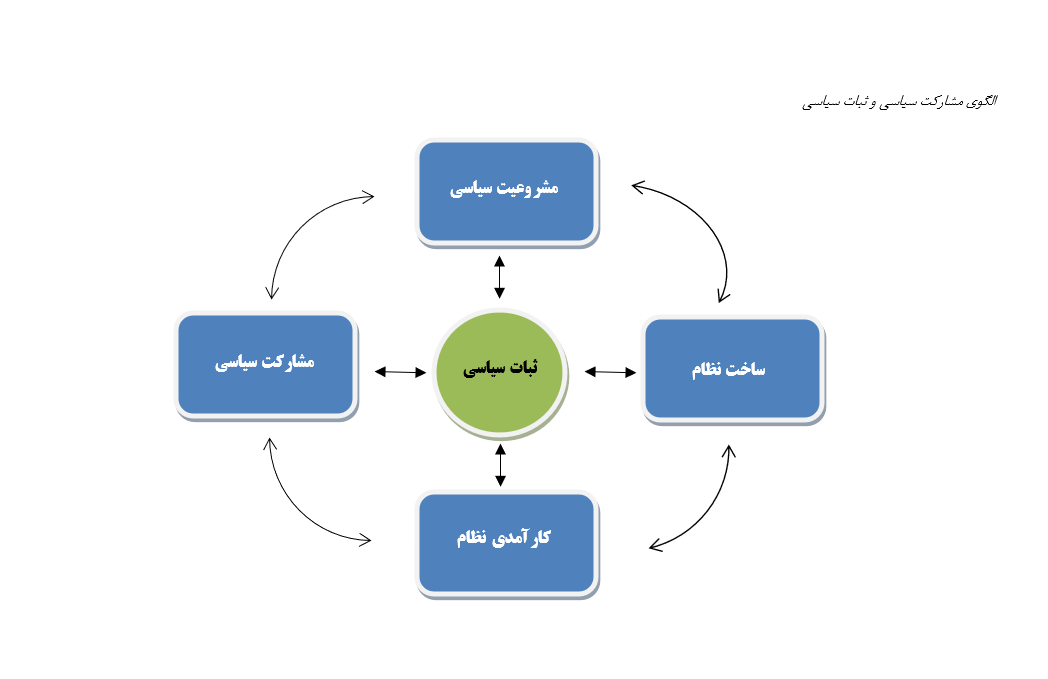Democratic System and the Role of Participation in Political Stability and Instability: A Study of the Presidencies of Mahmoud Ahmadinejad and Hassan Rouhani
Keywords:
stability, instability, elections, peopleAbstract
This article seeks to examine the impact of political participation on political stability and instability during the presidencies of Hassan Rouhani and Mahmoud Ahmadinejad. The main research question of the article is: What is the relationship between political participation and political stability or instability within the framework of the Islamic Republic of Iran, which is based on democratic principles, and how can this relationship be analyzed? The hypothesis of the article is that political participation can play a role in increasing or decreasing political stability or instability. The research method employed in this study is based on Norman Fairclough’s Critical Discourse Analysis. This study demonstrates that the issue of political stability or instability is of great significance in political science, as it directly affects the continuity or discontinuity of a political system. Political systems have always been confronted with this issue. In this research, the concept of "religious democracy" refers to considering the votes, demands, and aspirations of the people within the value-based foundations of Islam. "Political stability" is defined as a state in which a relative balance exists among the three strata of elites—intellectual, instrumental, and political—across various domains. When this balance is disrupted due to increasing divergence, political instability will afflict society. In such a situation, the primary duty of the political system is to preserve this balance among the elites, which can facilitate the modernization of society without severe ruptures in policymaking and implementation.
Downloads
References
Abtahi, S. M., & Heydari, N. (2013). Partisanism in the Political System of the Guardianship of the Islamic Jurist. Political Science Quarterly, 24, 127-152.
Ahmadi, A. (2022). A Look at the Position of Religious Democracy and Government. New Horizons in Political Jurisprudence, 12, 9-28.
Akbari, E. A., & Amini, M. (2010). Urban Quality of Life in Iran (1986–2006). Social Welfare Quarterly, 10(36), 121-148.
Delavari, A. (1999). An Investigation of the Roots of Violence and Political Instability in Iran Faculty of Law and Political Science, University of Tehran]. Tehran.
Eftekhari, A. A., & Tajik, M. R. (2002). An Introduction to Red Lines in Political Competition. Farhang-e Gofteman.
Fairbanks, S. C. (1998). Theocracy versus Democracy: Iran Considers Political Parties. Middle East Journal, 52(1), 17-31.
Hosseini, M. R. (2016). Political Competition and the Islamic Republic of Iran’s Strategy for Defining a Desired Situation. Rahbord, 25.
Huntington, S. P. (1996). Political Order in Changing Societies. Nashr-e Elm.
Khajeh Sarvi, G. (2003). Political Competition and Political Stability in the Islamic Republic of Iran. Islamic Revolution Document Center.
Khajeh Sarvi, G. (2009). A Framework for Analyzing Political Competition and Stability with a Focus on the Experience of the Islamic Republic of Iran. Imam Sadeq University Research Journal, 18–19.
Lerner, D. (1964). The Passing of Traditional Society: Modernization of the Middle East. The Free Press of Glencoe, Collier-Macmillan.
Pitney, N. (2009). Iran Election Live-Blogging (Tuesday June 16). Huffington Post. https://www.huffpost.com
Pye, L. (2001). Crises and Sequences in Political Development. Strategic Studies Research Institute.
Sanders, D. (2002). Patterns of Political Instability. Strategic Studies Research Institute.
Shirazi, H. A., & Sahraei, A. (2018). Role and Impact of Parties on Political Stability in Iran: A Case Study of the Reform Government. Strategic Studies of the Islamic Revolution, 1(3), 67-112.
Smith, B. C. (2000). Political Stability, Democracy, and Development. Ettelaat Siasi Eghtesadi, 169-170.

Downloads
Published
Submitted
Revised
Accepted
Issue
Section
License
Copyright (c) 2025 Mehdi Shahrabi (Author); Ali Ashraf Nazari (Corresponding Author); Seyed Mostafa Abtahi (Author)

This work is licensed under a Creative Commons Attribution-NonCommercial 4.0 International License.







